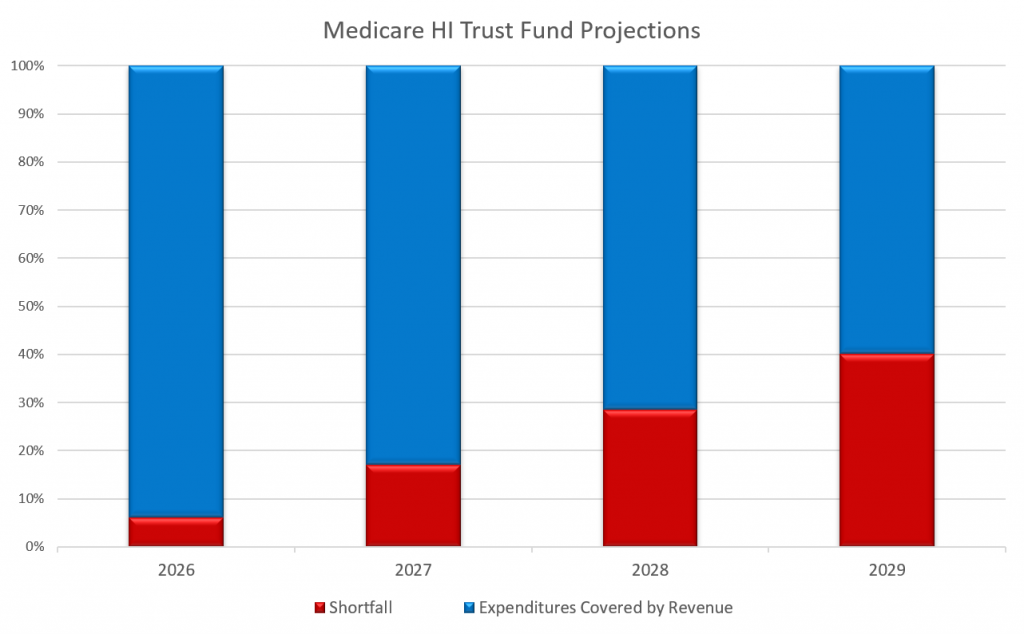Why the Outcome of the Election Doesn’t Matter

Don’t get me wrong, the outcome of the election—not just at the top of the ticket, but up and down the ballot—will have a significant impact on healthcare in this country. We do not intend to minimize that with the use of our attention-getting title. The presidential candidates have dramatically different approaches to finding solutions for the woes of our existing healthcare system, not the least of which is dealing with the pandemic that seems to be surging to a third wave across the US, and we have a divided Congress that cannot seem to agree on much of anything under either party.
But in one way, the outcome of the election does not matter: regardless of who wins on November 3rd, the Medicare Hospital Insurance Trust Fund is facing an existential crisis. The Medicare Board of Trustees Annual Report has projected consistently over the last three years that Medicare HI funds (Part A) will be depleted by 2026—and their 2020 projections do not include the impact of COVID-19. For a number of years, the Trustees have urged “prompt legislative action to achieve financial adequacy for the HI trust fund throughout the short-range period.”[1] Absent any such legislative action, current law requires that payments to providers be reduced to make up for any shortfall in revenue.
And now for the bad news—the “measly” 6 percent provider rate cut in 2026 is projected to grow to 40 percent by 2029.

Like it or not the next administration, be they Republican or Democrat, will face this crisis. We encourage the provider industry to be proactive in advocating for a solution that promotes high quality, cost effective, transformative care delivery, while ensuring that health systems can transition to a radically different payment model.
Absent that, do you have a financial plan that supports a 40% Medicare payment reduction?
A lot needs to happen in the Medicare space over the next four years.
PLEASE VOTE!
[1] https://www.cms.gov/files/document/2020-medicare-trustees-report.pdf, p 24.
Comments